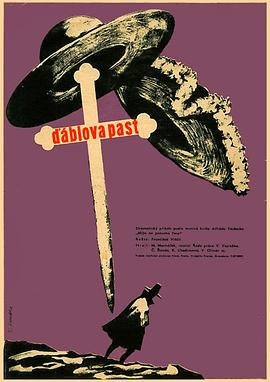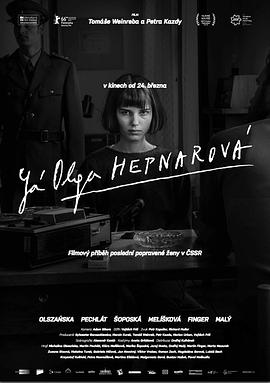主演的影片
1962
电影
/
剧情片
其它
Belohoubek
Bílá
Cestmír
Chadimová
Frantisek
Hasek
Indingerová
Jirina
Jirí
Karla
Kazda
Kindl
Kovárík
Ladislav
Milan
Monika
Olmer
Randa
Vejrazka
Vlastimil
Vít
Vítezslav
伊里·弗斯塔拉
米罗斯拉夫·马哈切克
约瑟夫·赫利诺马兹
贝德里奇·卡兰
雅罗斯拉夫·毛奇卡
In the time of Counter-Reformation, a miller and his son come under investigation by a priest of the Inquisition, when rumors spread that their prosperity comes from working with the Devil. The Devil's Trap is a film directed by František Vláil, based on a novel by Alfréd Technik, adapted by František A. Dvorák and Miloš Kratochvíl. It was the first of three historical dramas that Vláil made during the Czech New Wave (technically he isn't really a part of the New Wave, however these films were made during the same era of artistic freedom), preceding his more well known Marketa Lazarová (1967) and Valley of the Bees (1968). Set in the late 16th Century during the Catholic Reformation, in the Moravian Karst, situated in what is now the Eastern Czech Republic, it tells the tale of a miller (Vítezslav Vejrazka), and his son Jan (Vít Olmer), who come under suspicion and are investigated by a Jesuit priest of the Inquisition (Miroslav Macháchek), when rumors of witchcraft are spread by the local regent (Cestmír Randa), who is jealous of the miller's prosperity and degree of respect among the local populace. As expected from Vláil, this film is a stunning experience all the way through. From the opening shot, an ominous manipulation of perspective with a close up of a mangled figure of Christ dominating the foreground against a tiny figure in black walking along the horizon, to the breathtaking confrontational finale inside the vast stalactite filled Karst caverns, it is a wonderful display of visual mastery. Maybe not quite as impressive as Marketa Lazarová, but still full of astonishing imagery. As seen from unique angles and distinct points of view which highlight the director's remarkable sense of awareness of framing, motion, and positioning on the emotional and dramatic tone of the scene. The most memorable being a repeated shot where the camera is suspended and launched with speed through the air towards the miller's door. The story here is a simple one and I would say more accessible than his later works. With a conventional structure emphasized as much by its plot and characters, than by its expressionistic cinematography or authentic historical detail. The events play out without much surprise, and there is a strong underlying, almost supernatural, mysterious aspect that is left unresolved, in fact barely explored, which is slightly disappointing, but only because it's so fascinating that I wish there was more. Acting is great all around. Particularly the villains Miroslav Macháchek as the priest, casting a sinister and imposing shadow wherever he goes, and Cestmír Randa as the weasel like regent behind all the persecution. While Vít Olmer brings a charismatic leading man presence in his role as the miller's son Jan, in love with the lovely orphan girl Martina (Karla Chadimová), who becomes a dangerous object of rivalry between Jan and other young men of the village. The film also features the evocative music of Zdenk Liška (perhaps the most prolific composer of the Czech New Wave). In this his second of eleven collaborations with Vláil, his compositions are used sparingly, but to great effect, complimenting but never overpowering a scene. The best example of which can be heard in an amazingly shot celebration and dance sequence at the end of the second act. The Devil's Trap might not be a masterpiece, but it is still a strong effort, with a fascinating straightforward story and a glorious historical setting captured beautifully by Vláil's unmistakable visual prowess. A fine work that would also be the perfect starter plate to prepare yourself for the challenging feast of Marketa Lazarová or The Valley of the Bees. It even has an easy to digest running time. It's therefore puzzling why this gem remains largely overlooked and ignored.
已完结
2016
电影
/
剧情片
其它
1973年,七月十日的布拉格,剛滿22歲的歐嘉開著一輛失速的卡車衝上人行道,造成八人死亡。歐嘉對警察說,她是故意的! 幾天後,地方的報社收到了歐嘉在案發前寄出的自白書,字裡行間不只是她的冷漠與殘酷,更透露出了一個被世人所拒絕的破碎靈魂:中產階級的家庭中她有衣食,卻沒有雙親的關愛,精神狀態與孤獨令她在工作與生活上屢屢碰壁,渴望愛情的她,幾次親密接觸卻無法填補她內心的巨大空虛。她以銳利的目光直視著這個她所不愛的世界,求救的信號來不及抵達,瀕臨極限的歐嘉於是踩下油門。她的衝撞與報復,也將她和人們都推上了無法回頭的道路…
已完结



